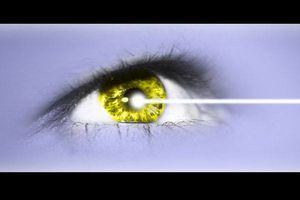Itchy, teary eyes? It’s a symptom of eye allergies

Antihistamines will help reduce inflammation of the eyes and eye tissues, as well as itching.
What you need to know:
- Eye allergies, also known as allergic conjunctivitis, are the result of your immune system overreacting to an allergen or irritant.
- Most people do not have to deal with allergies to dust or other particles. However, it is still worth taking precautions if you know your seasonal or perennial symptoms.
If these tips do not help alleviate your allergy symptoms, then have the doctor check for other causes of eye allergies.
As you get older, your eyes become drier and more sensitive. The barrier between your eye and the environment weakens as you age. This means it's easier for allergens or irritants to cause allergies in adults than in children.
What is an eye allergy?
Eye allergies, also known as allergic conjunctivitis, are the result of your immune system overreacting to an allergen or irritant. This can be anything from pollen and dust mites to chlorine in swimming pools. Even something as simple as soap residue left on towels after a shower can be an irritant.
When allergens contact the mast cells in your eyes, histamine is released as part of the immune response. As a result, the conjunctiva and eyelids become inflamed and irritated, which causes redness, itching, and swelling of the eye tissue. It can also result in watery discharge from your eyes.
Eye allergies can be seasonal or perennial (occurring all year round).
Eye allergies are triggered by
- Pollen
- Dust
- Pets
- Smoke
- Chlorine
- Chemicals
Common symptoms include
- A feeling that something is stuck or lodged inside your eye (gritty feel)
- Red, itchy, swollen eyes
- Sensitivity to light
- Tearing or watery eyes
How are eye allergies treated?
There is no one cure for all eye allergies. Treatment depends on the cause of your allergy and the severity of your symptoms. However, there are over-the-counter medications that you can take to treat your symptoms.
Antihistamines will help reduce inflammation of the eyes and eye tissues, as well as itching. Antihistamines come in different brands, but they all work by blocking histamine receptors from affecting cells - including those in your eyes.
Saline eye drops or eyewashes can also help with symptoms because saline has anti-bacterial and anti-viral properties.
Allergy shots (immunotherapy) can desensitise you to the allergens causing your symptoms. The shots are given in a long-term dose and are designed to help your body develop an immune response that is less reactive when exposed to the allergen.
How are allergies prevented?
- If your allergies are caused by contact with an allergen, avoid that allergen. For example, if pollen is the cause of your allergies, stay indoors as much as possible when the pollen count is high. You can also try wearing wraparound sunglasses to keep pollen out of your eyes.
- Wash your hands regularly and avoid touching your eyes as much as possible. This will help reduce the number of irritants that come into contact with them.
- Wash your bedding and clothes regularly to reduce the risk of dust mites. Use mild detergents.
- Take care when using beauty products. Ensure the equipment used are clean and sterile. You may have to stop using beauty contact lenses if they are a trigger.
- If you have pets keep them groomed and bathed regularly to reduce pet dander in your environment.
- Avoid smoking because it increases the risk of developing allergies. Second-hand smoke is also a significant contributor to eye allergies.



